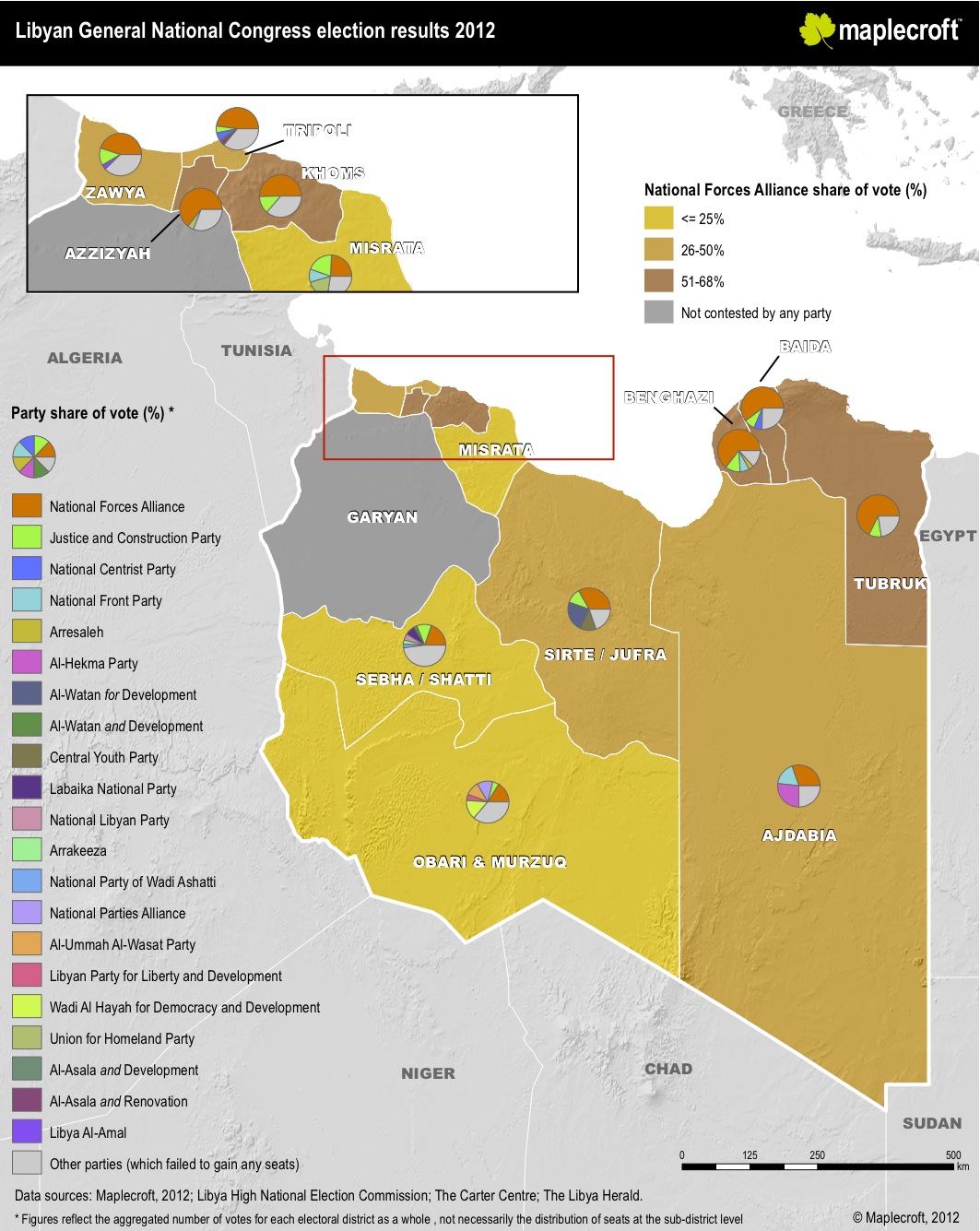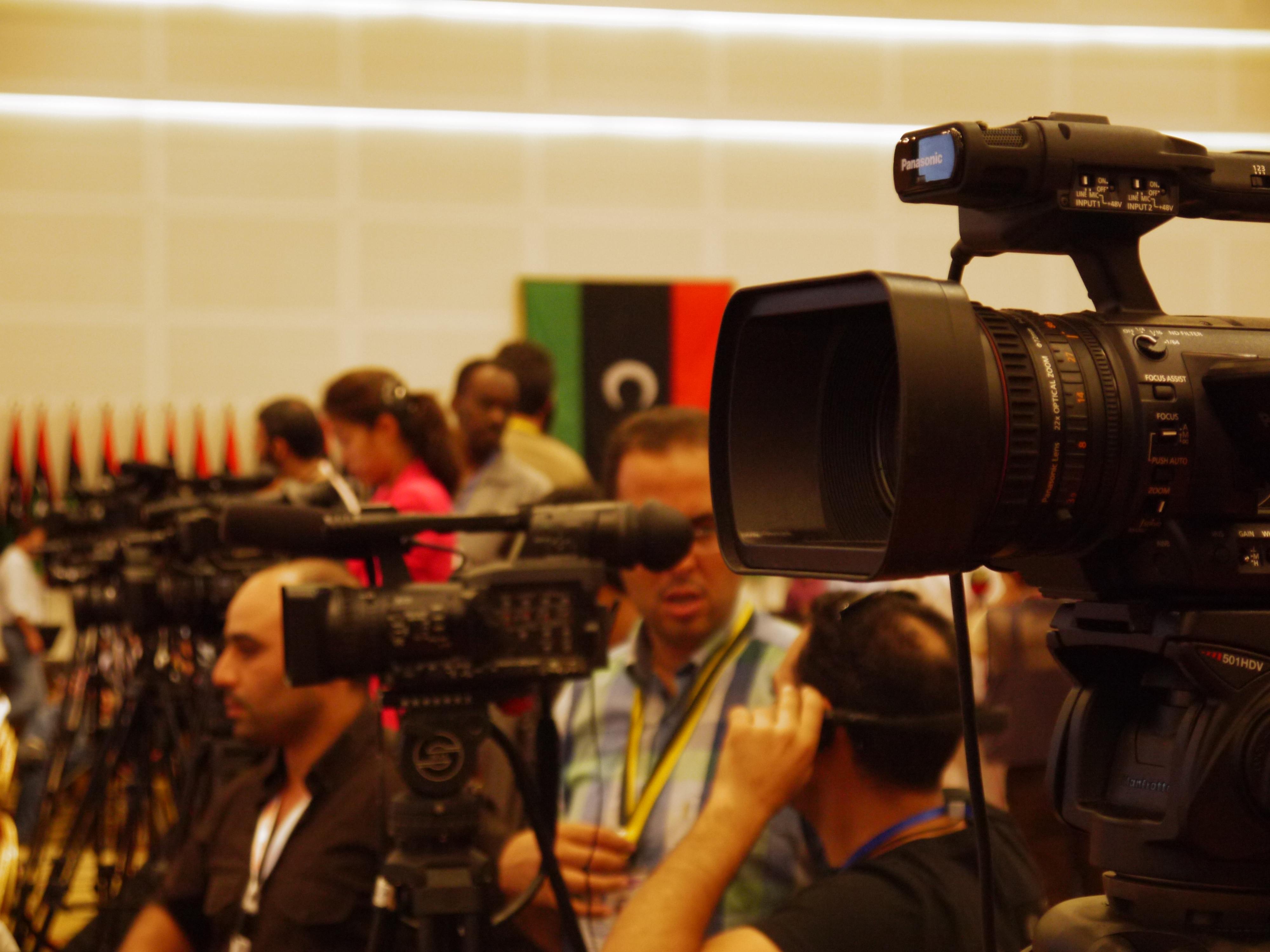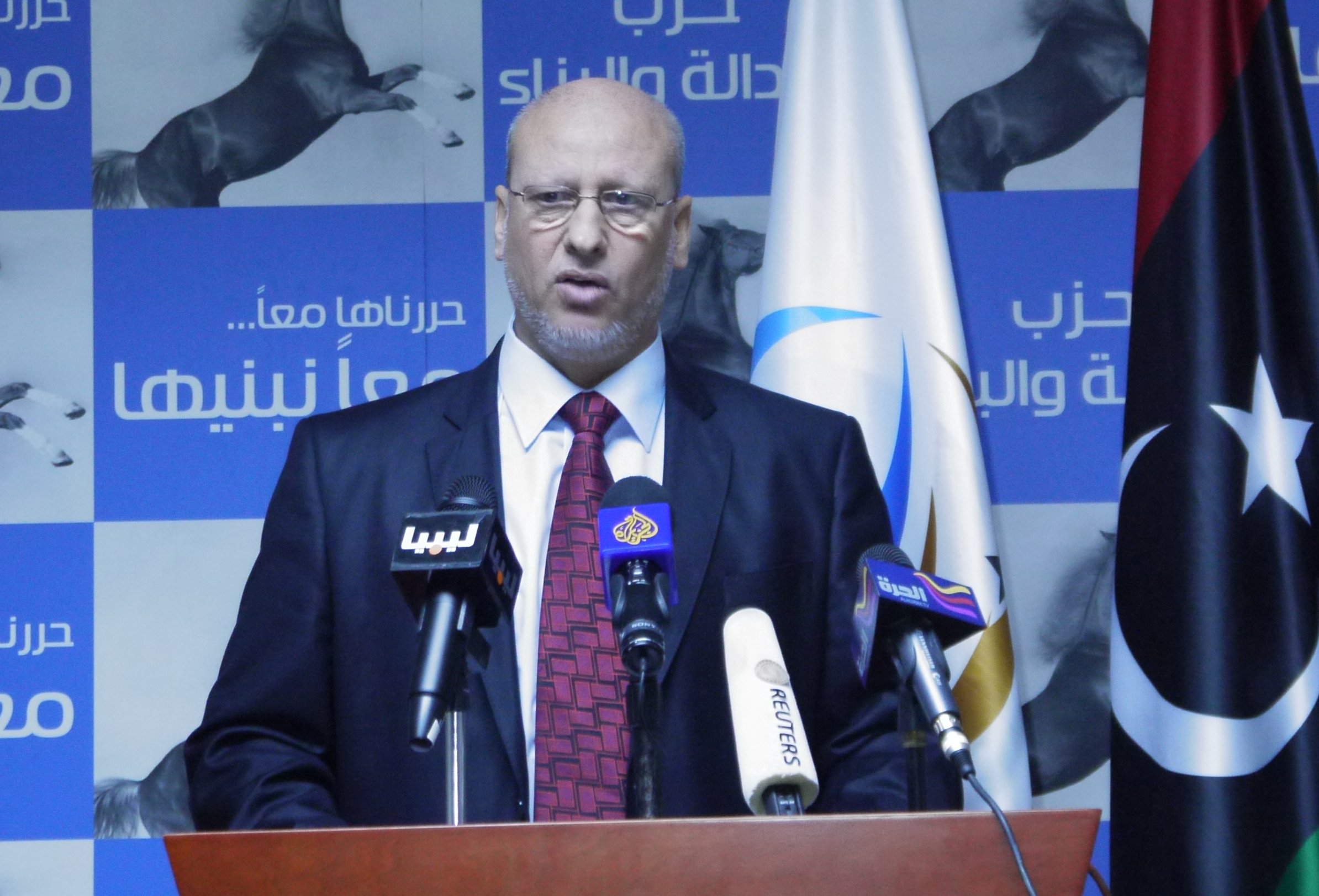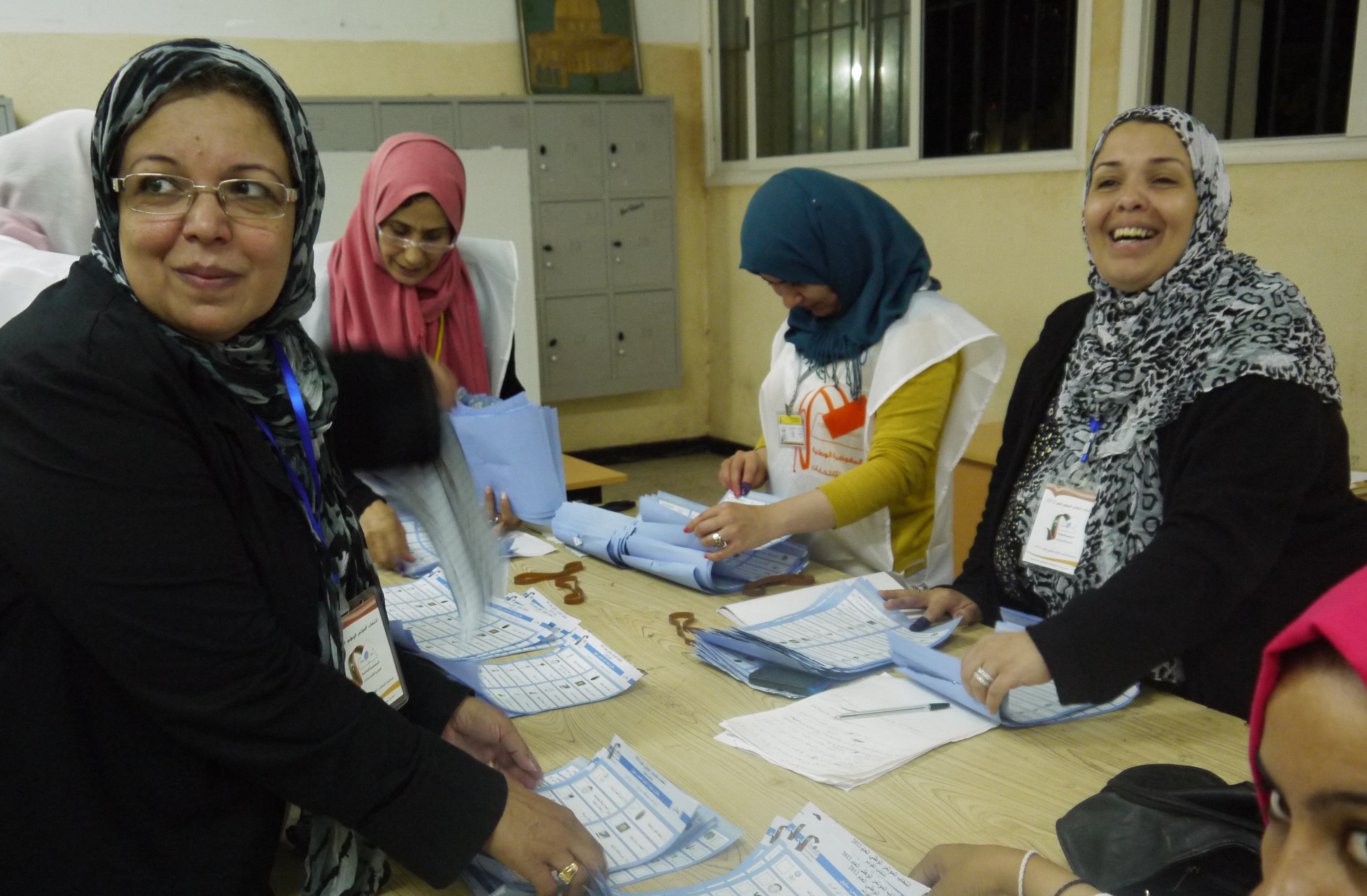By Umar Khan.
Tripoli, 30 June:
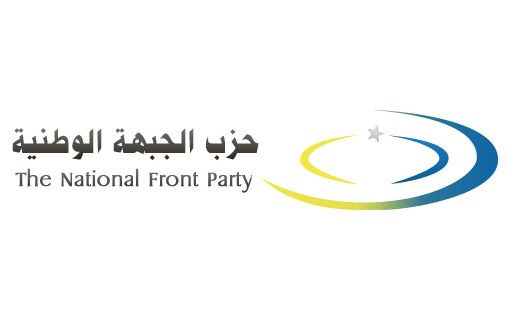
The National Front was founded in May this year when the National Front for the Salvation of . . .[restrict]Libya (NFSL) was dissolved. Muhammad Yusef Magaraif, who had hitherto led the NFSL, was elected as the head of the party in a conference held in Benghazi.
The party is fielding 45 candidates, making it only the sixth biggest party, although its long established pedigree as an anti-Qaddafi and pro-democratic force is expected to make it influential nonetheless.
The party has a “High Leadership Committee” consisting of 16 members which is headed by Magaraif and decides the party policy on different issues. The party has branches in all major cities across Libya but according to Magaraif, the party has strong support in Amazigh and Tebu areas, as well as eastern Libya.
The old NFSL was established as a resistance organisation against Qaddafi in 1981. It was established on a simple two point agenda: the removal of Qaddafi from the power and the establishment of institutional democracy in Libya. The organisation had a military wing that was behind many failed assassination attempts on Qaddafi.
According to Magaraif, the National Front believes that the parliamentary system will be the best choice for Libya and they support de-centralisation but strongly oppose the idea of federalism as the party believes that “it’s not something the people want”.
The National Front will be focusing on different issues during their electoral campaign including the development of institutional democracy, national reconciliation, justice, good governance, the role of women in the country and improving Libya’s economic infrastructure. The party promises to devote special attention to martyrs’ families, injured fighters and the missing persons.
The National Front policy on reconciliation is that justice should be done before reconciliation. According to Magaraif, reconciliation cannot be achieved without punishing those people who committed heinous crimes during the past 42 years. The National Front wants the trial of all people involved with the previous regime before reconciliation takes place.
The National Front presents itself as an inclusive, liberal and progressive party. It has a special policy on empowering women and encouraging them to take part in the nation building. There are 22 female candidates contesting in the elections for the party.
The National Front wants an organised and reformed professional army to protect borders and strategic facilities. It also wants to reactivate Libya’s security apparatus to ensure the country’s security and stability.
The National Front foreign policy is to remain neutral and improve ties with all neighboring countries without interfering in their internal affairs. It promises to respect international laws and to cooperate with the international community on issues of national importance on the basis of equality.
The National Front also promises reforms in all sectors including education, economy and healthcare.
The National Front website can be found at www.jabha.ly
Umar Khan can be found on Twitter at www.twitter.com/umarnkhan [/restrict]



